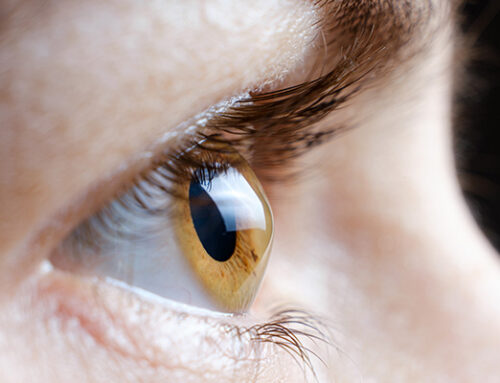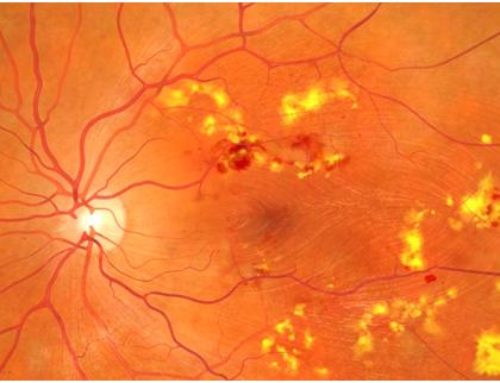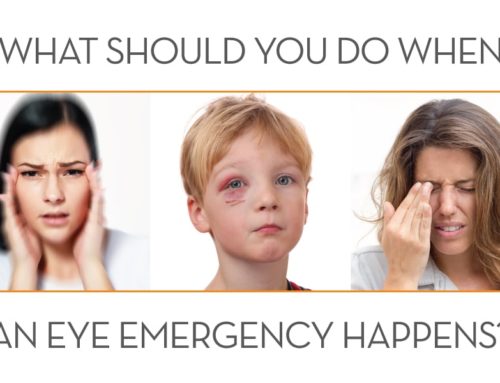Visiting a Chicago eye care center for a checkup is an important step to maintaining good eye health. Whether you scheduled the appointment for a regular checkup, or you are visiting for a specific health concern, the eye doctor can do a thorough exam in order to watch for signs of potential eye problems. If you are attending an appointment for a routine checkup, there are a few things that you can expect:
Pre-Appointment Questionnaire
You will want to arrive to your eye checkup a few minutes early, because you will need time to fill out your personal and medical information in order to be prepared for the exam. Some Chicago optometrist offices will have paperwork that you can fill out, others are now using a high tech system where the information is entered directly into a computer or handheld tablet. Regardless of the method to provide the information, the questions are pretty standard.
The pre-appointment questions will ask personal information, such as your full name, phone number, and physical address. The questionnaire will also inquire about your insurance information for billing purposes, such as eye doctor Chicago Blue Cross Blue Shield, or eye doctor in Chicago VSP. Remember that your vision insurance information is usually different than your regular medical insurance, and this article will discuss those differences in a moment.
Other questions that you will need to answer pre-appointment will be about your current health condition. You will need to provide details about any health concerns that you may be having, and share a list of medications that you have been taking. Even if the medial condition doesn’t seem relevant, it is still a good idea to provide that information for the doctor. As an example, many people don’t think that diabetes has anything to do with eye health, but if you have been diagnosed with diabetes then you should tell your Chicago eye doctor immediately. The change in blood sugar levels can have an impact on your vision, and your eye doctor can help you determine the best eye treatments to accommodate your personal health situation.
Chicago Eye Doctor Medical Billing
It is always a good idea to have an insurance plan which covers eye care treatments. Most regular medical insurance plans do not include eye appointments, which means that you will need to pick up a separate insurance policy that covers eye care. If you receive medical insurance benefits through a group plan through your employer, such as Blue Cross Blue Shield, then the employer probably offers vision insurance as well. Talk with the insurance administrator at your work in order to find out about the vision insurance options that are available.
If you don’t have insurance through a group plan, then there are many private or individual insurance options that are available. Look around to find a vision insurance plan which offers good coverage, includes Chicago eye doctors so that you don’t have to travel for your appointments, and you might also check to see if your favorite eye doctor is included as an in-network provider.
Some people choose a self-insure option for eye care, which means that they simply pay for the cost of their eye appointments, services, and glasses out-of-pocket. You may consider the eye care needs of your family in order to determine if this option is a good financial choice for your situation.
When you sign up for a vision insurance plan, it is a good idea to keep your insurance card in your wallet, because you will need that insurance card when you visit your Chicago eye doctor. The insurance card is proof of insurance, and if you have additional questions about your coverage then you can call the insurance company. Most eye doctor offices will ask for your insurance card, and they will make a photo copy of it in order to keep your information on file.
For example, if your eye doctor in Chicago accepts Blue Cross Blue Shield, then you will need to provide your Blue Cross Blue Shield insurance card. The insurance card contains the information that the office will need to bill for the services, such as the insurance member number as well as the group policy information. With this information, the optometrist office will have everything that they need to submit your billing information so that the insurance company will pay for the services and treatments that you received.
During the Exam with a Chicago Eye Doctor
One you have taken care of all of the pre-appointment information, you are ready for the eye appointment to begin. There are several eye tests that the doctor may use, including:
- Eye Muscle Test: This test analyzes the movement and control of your eyes. The doctor will ask you to visually track a specific object as it is moved around, and your eye movements will be observed as you look at the moving object.
- Pupillary Reactions and External Exam: The pupil reactions are an important part of eye health, so the Chicago eye doctor will test your pupils by shining light into the eye. When the light is present, the pupils will change. Additionally, the eye doctor will take a look at the external health of your eye, to see if there is anything that looks out of the ordinary. The external exam considers the health and position of your eyelids, as well as the health condition of the white portion of your eyes.
- Cover Test: This test allows the eye doctor can see the eye movements and how the two eyes work together. The doctor will have you stare at a specific object in the distance, and then each eye will be covered and uncovered to see the movements of the eyes. The test may be repeated with an object closer to you. When the doctor is looking at these eye movements, the sign that they are watching for is whether one of the eyes turns in a different direction from the target object.
- Vision Test: The vision test is the activity that most people associate with visiting a Chicago eye doctor. During this test, you will be looking at en eye chart, and the letters will gradually get smaller as you read further down the line. You continue reading the letters until they are no longer legible. This test may be performed with one eye at a time, in order to test the vision differences between the two eyes. This test is the main section of the vision test, and it helps the doctor to determine if you have a need for glasses or contacts.
- Retinoscopy: A phoropter is a machine that the eye doctor may have you look through, and while you are looking through the machine the lenses may will flip and a light will be shining in your eyes. Another automated machine can be used, called a refractor. This test is another method to help the doctor determine your needed prescription, because the light reflection in your eye is a good indicator about the lenses that you will need to wear.
- Ophthalmoscopy: Also known as a Retinal exam, this test allows the doctor to see the health inside your eyes. The Chicago eye doctor will put a few drops in each eye, and after about 20 minutes your pupils will dilate. With the pupil dilation, the doctor can look into each eye to examine the optic nerve, blood vessels, retina, and all other health indicators within your eye.
- Fluid Pressure Test: It is a good idea to test for glaucoma, which affects the pressure of your eyes. During a glaucoma test, there are two methods that a Chicago eye doctor may use: first, a tonometer test is done by numbing the eyes with a few drops, and then using a specific tool to gently touch the surface of the eye. The other glaucoma eye test uses a puff of air, and the doctor can view the eye’s resistance to the puff of air. One or both of these tests may be used to help the doctor determine the pressure levels of the eye, so that they can see if glaucoma is a concern.
These are the main tests that a Chicago eye doctor may use, but there are additional tests that may be implemented on an as-needed basis. If you are visiting a Chicago eye care center and the doctor finds a sign for a specific health concern, then they will likely perform additional tests to gain more information about that health concern.
After the Appointment at a Chicago Eye Care Center
Once you are done with your appointment at a Chicago eye care center, there are a few more things that you may need to do. If you need glasses or contacts, the staff in the eye care center will help you to choose the right products, and then they will place the order. Most optometry offices include a lot of eyeglass frames within the office so that you can try on different styles and colors.
After choosing the glasses frames that you like, the office will submit the order for the frames as well as the prescription lenses that you will need. Each prescription is catered specifically to the strength/weakness of your eye, to make sure the prescription perfectly matches your vision needs.
Even if you are planning to use contact lenses, it is still a good idea to buy a pair of glasses. Many people like to wear their glasses in the evenings, or on days when their eyes are dry or tired. Glasses can be a nice break from contacts.
If you are planning to buy contacts, then one of the office staff will spend some time with you to teach you how to use the contacts. Specific techniques can be used to insert and remove the contact lenses from your eye. Additionally, they will show you how to clean and care for the contacts, in order to be sure that you are getting the most use out of each content lens that you purchase. Remember that many people have different prescription needs in each eye, which means that you should avoid getting your contacts mixed up. Keep track of the right and left contact, because you might experience headaches and discomfort if you mix them up and wear them in the wrong eyes.
Cautionary Warning After an Appointment with a Chicago Eye Doctor
Keep in mind that you need to be careful after your eye doctor appointment, because certain tests and treatments can affect your vision and response. For example, if the Chicago eye doctor dilated your eyes to view the internal health of your eyes, it can affect your vision by causing things to look blurry. This pupil dilation also affects the way your eyes respond to light.
Because of the light sensitivity, you will need to bring a good pair of sunglasses to wear when you leave the office. Be sure the sunglasses are big and have a good coverage over the eye, with dark tinted lenses. Or, if you don’t have sunglasses available, then the Chicago eye care center may provide you with a disposable pair of sunglasses that you can wear.
The blurry vision and light sensitivity can have a negative impact on your ability to see and drive, so you should bring someone with you who can drive you home from your appointment. It is never a good idea to drive within a few hours of having your pupils dilated, so it is best to have someone else drive for you. Allow yourself a few hours before returning to regular daily activities.
If you ordered glasses or contacts, it usually takes a few business days before the products are delivered. Once your items have arrived, the Chicago eye care center will contact you to let you know that you can stop by to pick up your prescription lenses. Plan to spend a few minutes in the office, because the glasses will need to be balanced and adjusted so that they sit evenly on your ears and face.
Choosing a Chicago Eye Care Center for your Family
It can be a hard decision to choose the right Chicago eye care center for your family. Most people want to be sure that they are visiting with a Chicago eye doctor who is very experienced and up-to-date on the current eye treatments. There are several things that you can do in order to make the decision about the eye doctor that you would like to visit.
First, you might consider talking with friends and family to see if anyone has a suggestion about the Chicago eye doctor that they like to use. Once you have found a few recommendations, it is a good idea to check with your insurance company in order to make sure that the doctor considered “in network.” You also might contact the Chicago eye care center and discuss your insurance coverage with them, to be sure that the office accepts the type of insurance that you have.
If you don’t have any referrals from your friends and family, you might ask your primary care physician for a referral or a suggestion. Another option is to look at the list provided by your insurance company, in order to locate a Chicago eye doctor who is near you.
Once you have decided on the eye doctor that you would like to visit, it is a good idea to plan regular checkups. Most adults will need to visit the optometrist every two years for a regular checkup, although certain health conditions may require more frequent checkups. Your Chicago eye doctor will advise you on the right frequency for your health needs.







